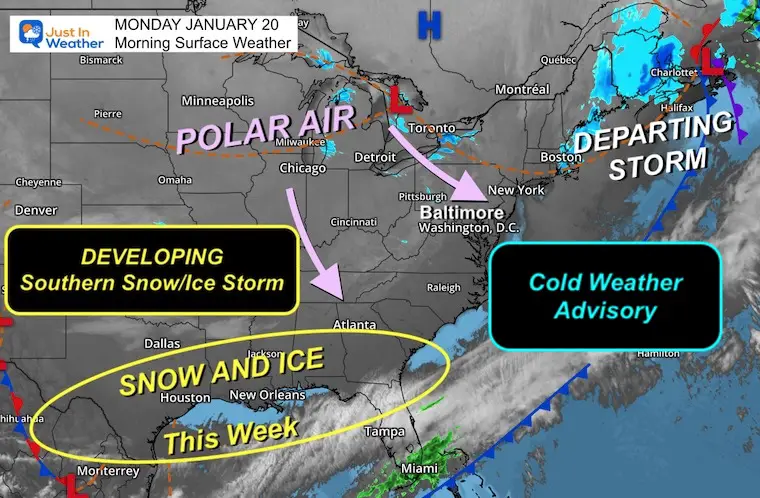Tens of millions of workers in the United States are subject to restrictive contracts that prevent them from leaving their current jobs. While Democrats recently lost their majority in the House, President Joe Biden has the authority to institute a nationwide ban on non-compete clauses without new legislation.
MONTREAL – The mega-challenges overwhelming the world today -from covid-19 to climate change- have exposed the interdependencies between people, the planet and the economy. As we chart a course to revive global growth and drive green, resilient and inclusive development, we must not ignore these interconnections. Nature – biodiversity and the services that healthy ecosystems provide – is central to this task, especially in developing countries, where poor people in rural areas are often highly dependent on nature’s services and are the most vulnerable. to its extinction.
As the international community gathers in Montreal for COP15, the United Nations summit on biodiversity, we must reaffirm the need to invest in nature, in tandem with climate action. After all, half of the world’s GDP is generated by sectors – from agriculture and timber to the fishing industry – that are moderately or highly dependent on ecosystems, and two-thirds of edible crops depend at least in part on pollination. animal.
However, these vital natural assets are increasingly compromised. Almost a million species of plants and animals are on the brink of extinction and 60-70% of the world’s ecosystems are degrading faster than they can be recovered. Low-income countries could lose around 10% of their GDP annually by 2030, the World Bank estimates, even if ecosystem collapse is confined to only a few services, such as wild pollination, food from marine fisheries and wood from native forests.
The loss of nature is also closely connected to climate change. Today we know that the two crises are mutually reinforcing, and with potentially dire implications for the health of ecosystems globally. To combat climate change, we need strong, vibrant forests and healthy oceans that absorb carbon dioxide; but climate change itself is endangering these systems.
Preserving biodiversity and ecosystems is the key to unlocking economic opportunities that can help communities prosper. Estimates show that adopting more sustainable ways of growing food, building cities and infrastructure, and generating energy could lead to $10.1 trillion in new business opportunities annually, creating 395 million jobs by 2030. The ocean economy alone has the potential to double (to $3 trillion) by 2030.
However, to address biodiversity loss and the climate crisis, climate and nature objectives need to be better coordinated. At the global level, the Convention on Biological Diversity and the United Nations Framework Convention on Climate Change need to align more closely in their processes and ambitions. Similarly, countries must do more to align their Nationally Determined Contributions (emission reduction targets) and their National Biodiversity Strategies and Action Plans. And, at the local level, communities need to be supported by investing in nature-based solutions like forests, which can help with climate mitigation and adaptation.
All of this underscores the need for an economy-wide strategy, one that commits central governments, finance and sector ministries, and others to supporting reforms that address market, political, and institutional failures. Otherwise, misaligned policy incentives will continue to put a negative price on nature’s services. As it is, governments are spending at least $800 billion a year on subsidies (for fossil fuels, agriculture, and so on) that are potentially harmful to nature. Worse yet, environmental policy has been isolated from development policies and strategies, and its implementation is often confined to a single ministry, despite the systemic risks posed by nature loss.
At COP15, countries will seek agreement on the Post-2020 Global Biodiversity Framework, which could spur the comprehensive change that is needed. The framework, which comprises a wide range of ambitious targets, would address the triple environmental crises of nature loss, climate change and pollution, while helping to alleviate poverty. But guaranteeing its effectiveness will require closing the gaps in knowledge and methodology that are still pending, collecting more data and designing new tools and metrics to integrate the various sectors and quantify the benefits of the action.
We must also do more to close the biodiversity finance gap, estimated to be $700 billion a year over the next decade. Obtaining more and better private financing is of special importance. We need to adopt a holistic approach that includes both greening finance (directing financial flows from harmful projects to nature-friendly projects) and financing green projects (mobilizing greater investment in conservation, restoration and sustainable use of resources).
To that end, the World Bank Group is supporting developing countries as they integrate nature, climate, and development issues into their policy design and decision-making. We are undertaking projects that invest directly in the conservation of species and natural habitats, and supporting livelihoods that depend on natural capital such as forests, fisheries and agriculture.
As the largest multilateral biodiversity financier, the World Bank offers a range of financial services and tools to promote green investments. For example, Seychelles launched its first blue sovereign bond (which supports sustainable marine and fisheries projects) with Bank support. The Bank also introduced the $150 million “Rhino Bond”, a first-of-its-kind financial instrument, linked to clear conservation objectives, that channels private sector investment to protect black rhinos in South Africa.
PROBLUE, a 14-donor-backed trust fund, has provided nearly $100 million in grant financing since 2018, helping to unlock $4 billion in Bank financing for projects from West Africa to East Asia. The Bank is also working with countries to make global finance more sustainable, supporting, for example, the Task Force on Nature-Related Financial Disclosures, which seeks to improve transparency and integrate nature-based considerations into reporting. financial decision making.
Given the strong links between poverty, climate change and biodiversity, preventing further nature loss is not only the right thing to do; it also makes sense from an economic and development standpoint. We must continue expanding investments in protecting nature and producing in a more sustainable way. The future of development depends on it.
Najah A. Farley is a Senior Staff Attorney for the National Employment Law Project
Sandeep Vaheesan is legal director of the Open Markets Institute.
Copyright: Project Syndicate, 1995 – 2022
www.projectsyndicate.org
hartford car insurance shop car insurance best car insurance quotes best online car insurance get auto insurance quotes auto insurance quotes most affordable car insurance car insurance providers car insurance best deals best insurance quotes get car insurance online best comprehensive car insurance best cheap auto insurance auto policy switching car insurance car insurance quotes auto insurance best affordable car insurance online auto insurance quotes az auto insurance commercial auto insurance instant car insurance buy car insurance online best auto insurance companies best car insurance policy best auto insurance vehicle insurance quotes aaa insurance quote auto and home insurance quotes car insurance search best and cheapest car insurance best price car insurance best vehicle insurance aaa car insurance quote find cheap car insurance new car insurance quote auto insurance companies get car insurance quotes best cheap car insurance car insurance policy online new car insurance policy get car insurance car insurance company best cheap insurance car insurance online quote car insurance finder comprehensive insurance quote car insurance quotes near me get insurance









